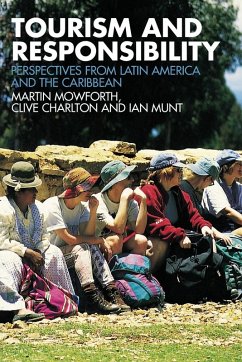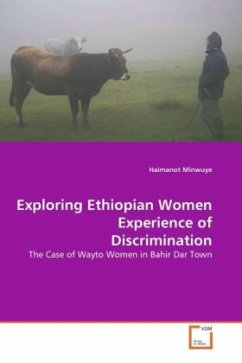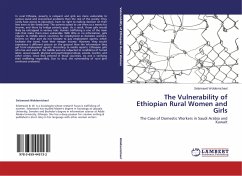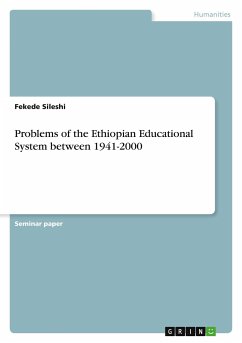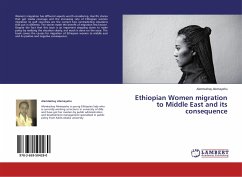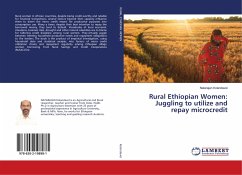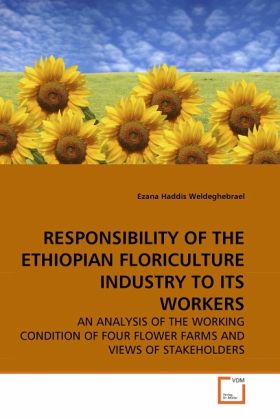
RESPONSIBILITY OF THE ETHIOPIAN FLORICULTURE INDUSTRY TO ITS WORKERS
AN ANALYSIS OF THE WORKING CONDITION OF FOUR FLOWER FARMS AND VIEWS OF STAKEHOLDERS
Versandkostenfrei!
Versandfertig in 6-10 Tagen
39,99 €
inkl. MwSt.

PAYBACK Punkte
20 °P sammeln!
This book was written based on an empirical research conducted on April,2007 on four flower farms in West Showa zone of Oromiya Regional State of Ethiopia and with relevant stakeholders of the industry.The book revealed the existence of flexible working condition, payment of low wage hardly enough for survival, lack of paid leave, widespread discrimination in giving promotion,lack of basic facilities, failure to properly implement health and safety rules, and denial of workers right to organize into trade unions in the farms studied. Based on these findings the book concluded that the farms st...
This book was written based on an empirical research conducted on April,2007 on four flower farms in West Showa zone of Oromiya Regional State of Ethiopia and with relevant stakeholders of the industry.The book revealed the existence of flexible working condition, payment of low wage hardly enough for survival, lack of paid leave, widespread discrimination in giving promotion,lack of basic facilities, failure to properly implement health and safety rules, and denial of workers right to organize into trade unions in the farms studied. Based on these findings the book concluded that the farms studied are far from being responsible to their workers. The book also narrates the activities of relevant stakeholders' of the industry to promote a socially responsible flower production; however, they were constrained due to capacity limitation and political interference from the federal government.Finally,the book implicates, based on the study, the adoption of responsible flower production and remarked the need to build the capacity of labor offices found at each level and execution of their activities free from political interference.




